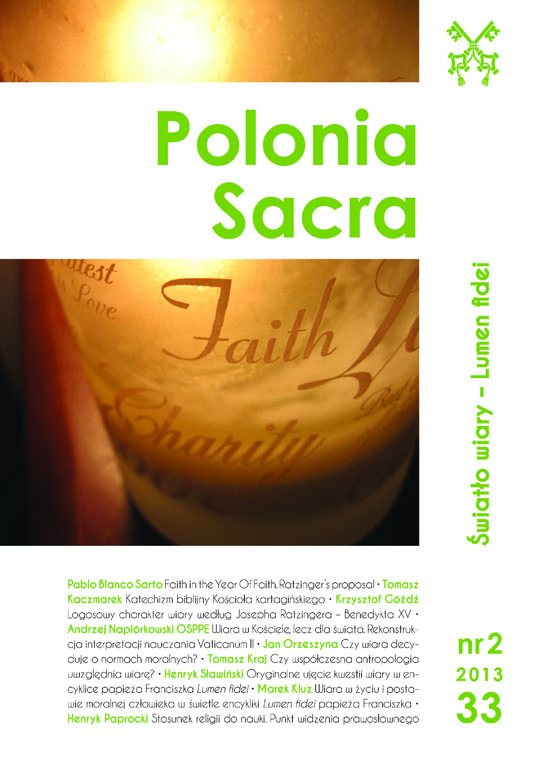Wkład Tomasza Cranmera w rozwój angielskiej reformacji
DOI:
https://doi.org/10.15633/ps.374Słowa kluczowe:
Tomasz Cranmer, angielska reformacja, Henryk VIII, modlitewnik dla wiernych, teologia Eucharystii, Tomasz Cromwell, Księga Episkopatu, królewskie artykułyAbstrakt
The article concerns the life and work of Tomas Cranmer and shows the process of maturing English Reformation and her complexity under royal leadership. Cranmer has contributed significantly to the reform of the English Church as a professor of the University of Cambridge and the Archbishop of Canterbury. He was very involved in matter the annulment of the marriage of Henry VIII. Over the years, he was climbing the ladder of increasing positions and dignity. He took an active role in discussions about theological differences between the conservatives and the reformers. He disciplined some reformers. He was the author of several books, which are aimed at improving reforms in the country. The largest participation of the Cranmer’s work in the English Reformation was the influence of the creation, edition and shape the Book of Common Prayer. As a part of his reform program he worked on the revision of canon law, a correction formula of the prayer book and formation of doctrine, which were ingrained in the Bible and the patristic thought. He argued about spiritual presence of Christ in the Eucharist. He cooperated with European and English reformers. He was charged with treason, found guilty and sentenced to death.Pobrania
Opublikowane
2013-11-30
Numer
Dział
Artykuły
Licencja
Prawa autorskie (c) 2013 Wojciech Medwid

Utwór dostępny jest na licencji Creative Commons Uznanie autorstwa 4.0 Międzynarodowe.
Autorzy publikujący w czasopiśmie udzielają jego wydawcy zgody o następującej treści:
- Autor zachowuje autorskie prawa majątkowe do utworu, a jednocześnie udziela wydawcy czasopisma zgody na jego pierwszą publikację w wersji drukowanej i wersji online na licencji Creative Commons Uznanie autorstwa 4.0 Międzynarodowe oraz zgody na wykonywanie opracowań, w tym przekładów.
- Autor ma możliwość udzielania zgody niewyłącznej na opublikowanie utworu w wersji, która ukazała się w czasopiśmie (np. zamieszczenia go w repozytorium instytucjonalnym lub opublikowania w książce), wraz z informacją o jego pierwszej publikacji w czasopiśmie.
- Autor może umieścić swój utwór online (np. w repozytorium instytucjonalnym lub na swojej stronie internetowej) jeszcze przed zgłoszeniem utworu do czasopisma.
Jak cytować
Medwid, W. (2013). Wkład Tomasza Cranmera w rozwój angielskiej reformacji. Polonia Sacra, 17(2), 177–202. https://doi.org/10.15633/ps.374

